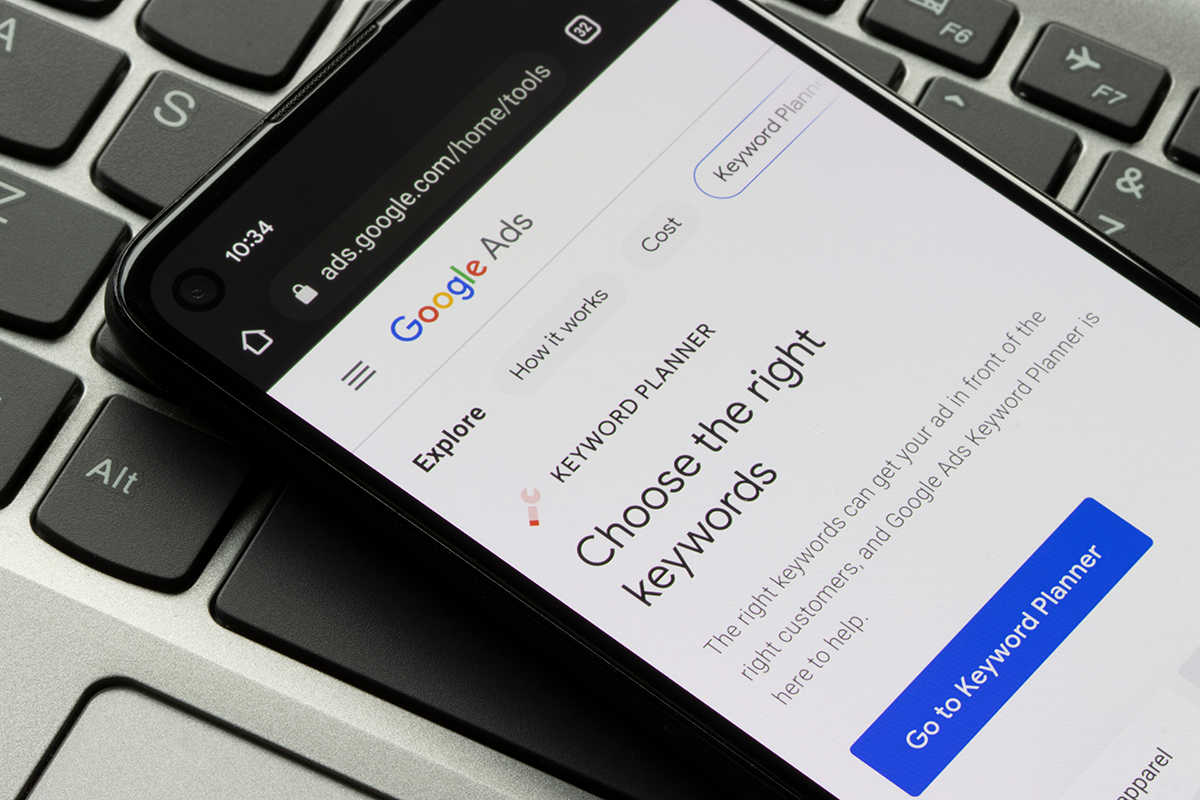Digital marketing encompasses a lot of possible platforms and services. They vary from social media marketing (organic or paid), search engine optimization (SEO), forum marketing (reddit ads, etc.), and finally pay per click marketing. PPC marketing is a form of digital marketing where advertisers pay each time an end user clicks on one of their ads. The most common form of ppc marketing is through search engines through Google Ads. Advertisers will bid on specific keywords allowing their ads to show at the top of a search engine results page when an end user searches for those keywords. PPC is not limited to searching keywords and can include: shopping ads, display ads, video ads, and more. Now let’s dive into how PPC works and why it is important to include it in your digital marketing strategy!
How does PPC work?
PPC advertising allows an advertiser to bid on specific keywords or keyword phrases on Google, Bing, or other search engine platforms that will appear at the top of search results. Once an end user clicks on one of the advertisers ads, an advertiser will be charged for that click. An advertiser can target their ideal end user through specific demographics, interests, in-market habits, locations, and more. Each search engine marketing platform has its own dynamic algorithm that picks the best price, time, and placement of ad for advertisers. However, there are other factors that account for serving ads that include: bid amount, ad relevance, quality ranking of ad, campaign objectives, and overall campaign strategy.
Types of PPC Ads
There are four major versions of PPC ads: search, display, video, and remarketing. Each of these options have their positives attributes but it really comes down to how you implement each ad version. Beyond the four major ad versions, there are three up and coming ad versions that are taking hold of advertiser’s strategies. Here is a breakdown of the various ad options:
- Search: A search ad appears at the top of search engine results pages when a user enters a specific query (keyword or phrase) into a search engine. These ads are typically text-based and are designed to be highly relevant to the user’s search.
- Display: A display ad is a type of ad that appears on websites, apps, and other digital platforms, typically in the form of a banner or other graphical format. Display ads are designed to be visually appealing and can include a variety of media such as images, videos, and interactive elements.
- Video: A video ad uses video content to promote your product, service, or brand. These ads can appear on various platforms, including social media (reels or posts), streaming services such as YouTube, and websites. Video ads on YouTube can be pre-roll, mid-roll, or post-roll ads, meaning they can appear before, during or after a video.
- Remarketing (or Retargeting): Remarketing is a form of advertising that allows businesses to show ads to users who have previously interacted with their website or mobile app. Remarketing ads are typically shown to users as they browse other websites, or as they use mobile apps, and are designed to remind the user of the business and encourage them to return to the website or app.
- Other ad versions: Performance Max, Local Search Ads, Remarketing List Search Ads
Why is PPC Important?
PPC marketing is so pivotal to the success of a brand’s marketing strategy and should never be considered an expense. In 2022, PPC brought in an average of $2 for every $1 spent, with an average cost per click (CPC) of $1.16 (we are all patiently waiting for the 2023 results!). Here are the several benefits of PPC that cannot be found in search engine optimization or social media marketing:
- Quick results: most platforms can have same-day ad approvals and ads can start spending.
- Reach your target audience: platforms allow advertisers to reach demographics such as interest, in-market habits, location (including radius targeting), gender, income, and more factors.
- Measurable: each platform has reporting or dashboard customizations to track conversions, ROI, cost per click, and other performance indicators.
- Cost-effective: more affordable than traditional advertising methods and can set a budget for specific campaigns.
- Branding: PPC in general can help increase the brand awareness of a company, regardless if users click on their ads or not (always stay top of mind).
Overall, PPC advertising offers a cost-effective and measurable way to reach a targeted audience, generate leads and sales, and ultimately increase brand awareness. Impakt Results can help bring a company’s PPC strategy to health and help increase conversion value for your business. Give us a call and we can go over your PPC strategy and start converting in your digital marketing strategies!
